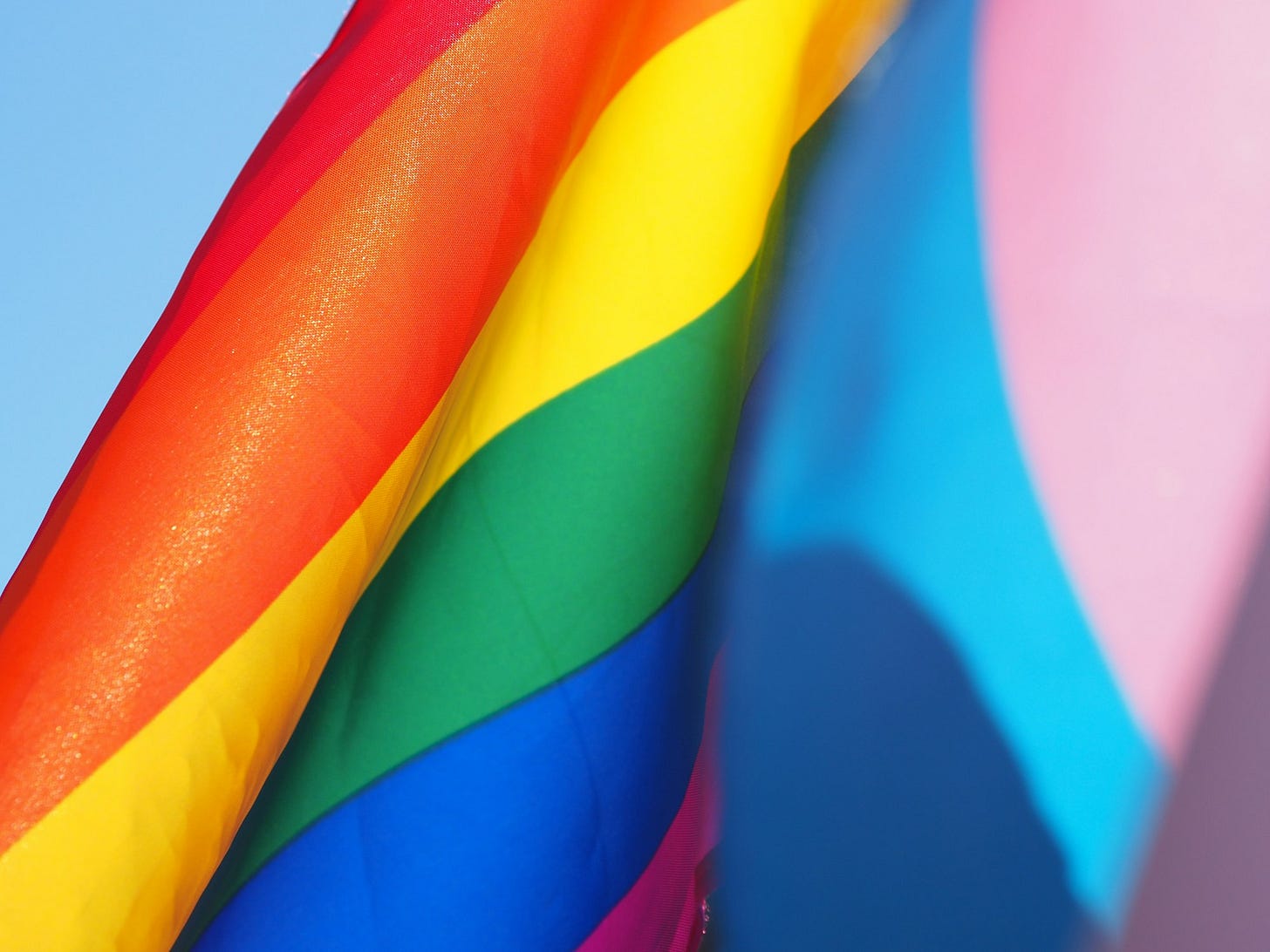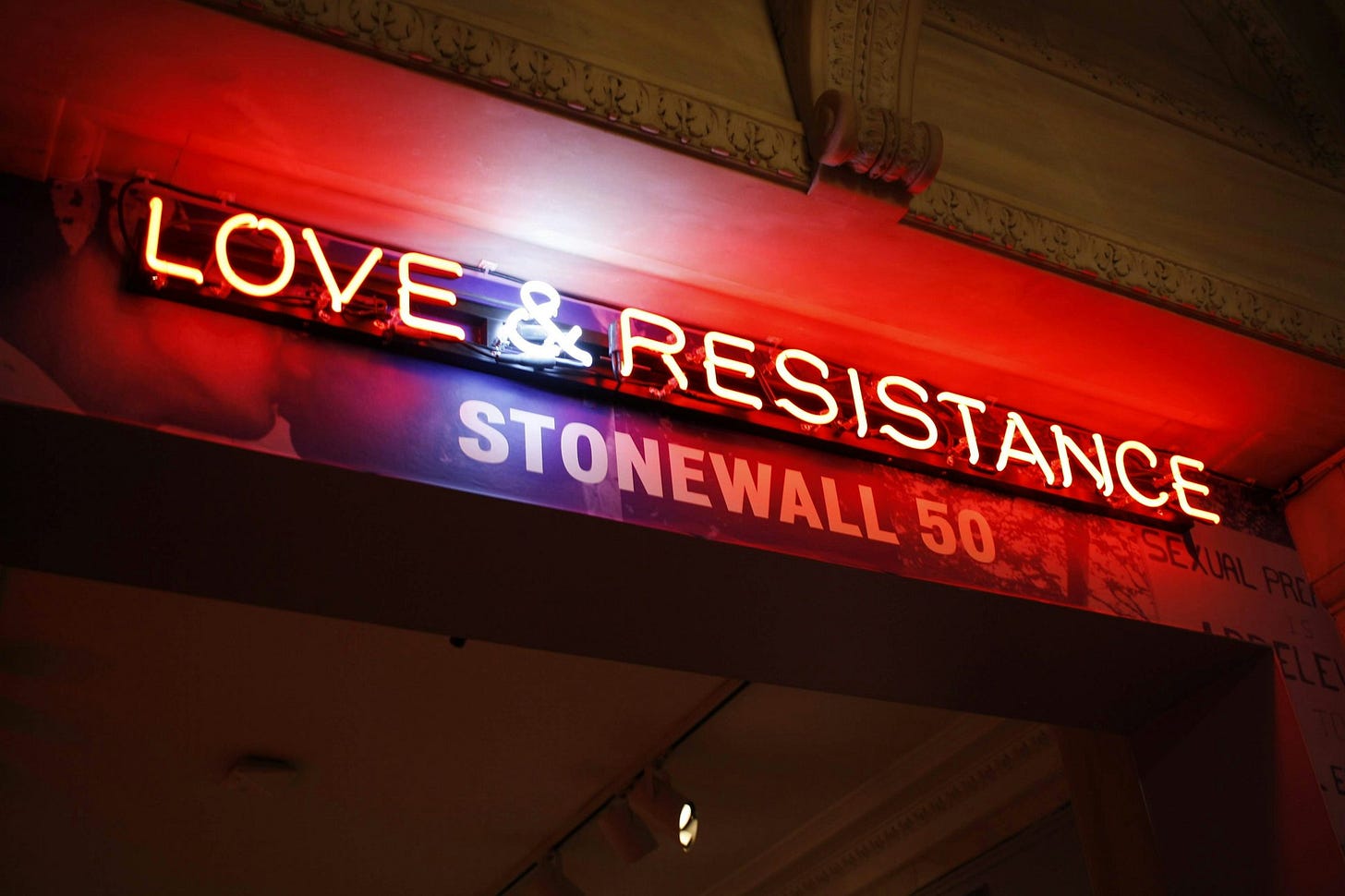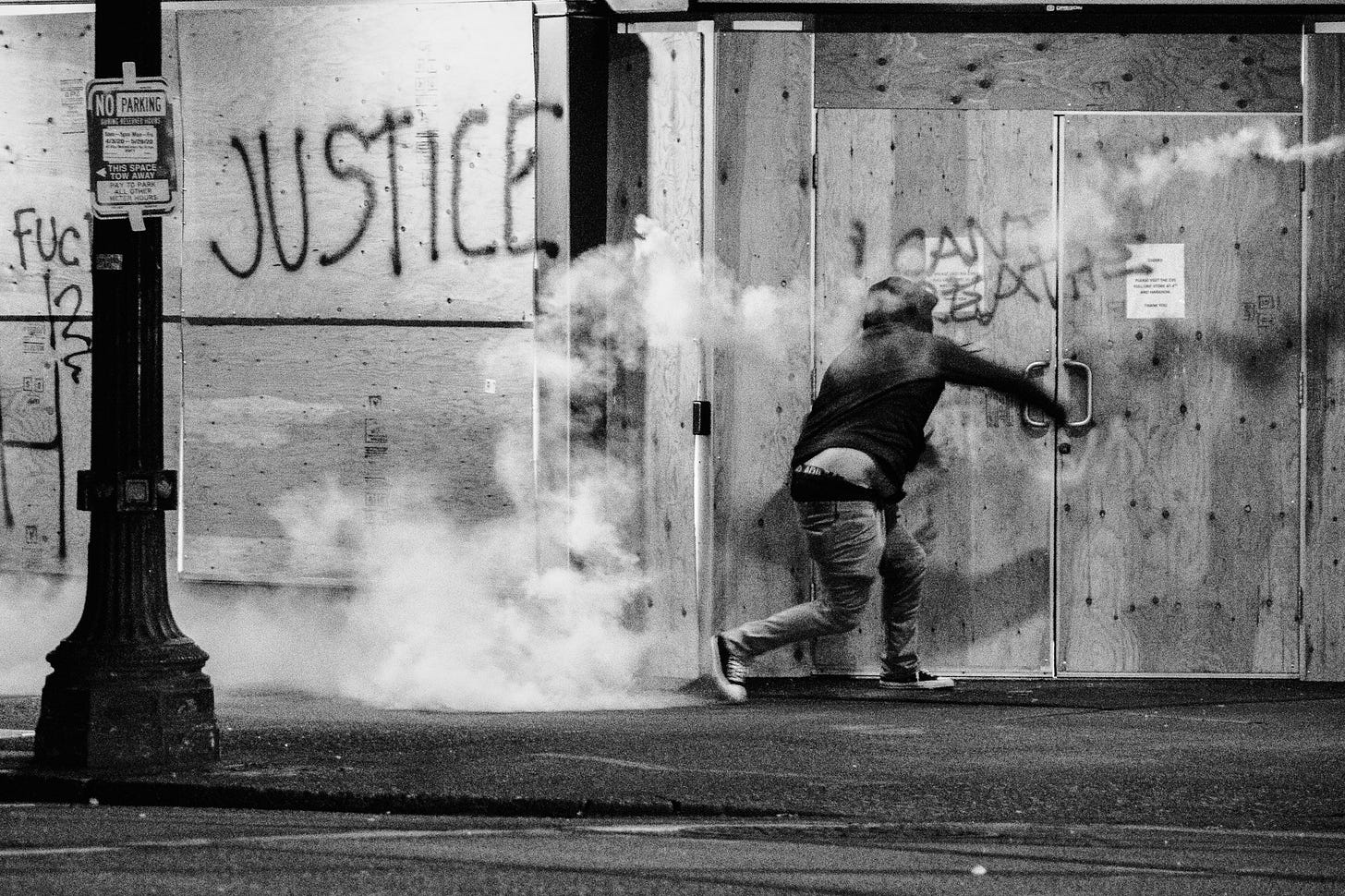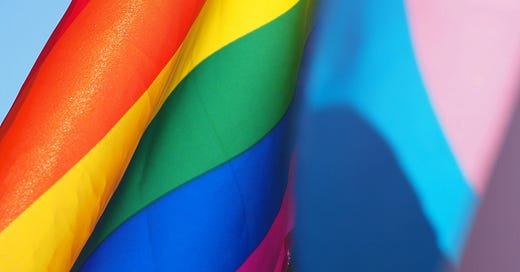The Stonewall Uprising

You can only push people so far before they decide to snap back. This truth has been proven repeatedly throughout human history; when people are oppressed, they will eventually stand up and fight.
Nobody will silently endure abuse forever. There is always a straw that breaks the camel's back.
This is why the Stonewall Uprising is easily one of the most iconic moments in the battle for LGBTQ+ rights. It was a flashpoint. A bomb going off amid a silo of shame and pain.
It was a moment when a marginalized community had finally had enough and decided to take action.
It wasn't the start of the gay rights movement in the United States, but a galvanizing event that made the stakes clear for every witness. It would pave the way for a future of acceptance and inclusivity that would last for decades—a future now under threat.
Now that we're roiling in a climate of fear and persecution that rivals the pre-1970s, it is more important than ever to look back at the history of LGBTQ+ rights.
We have successfully won those rights by ripping them out of the hoarding hands of bigots before.
We can do it again.

The Stonewall Uprising lasted several days, beginning on June 28th, 1969, at the Stonewall Inn in New York City's Greenwich Village.
It began as a police raid, something that happened quite frequently at most gay bars in the United States. Homosexuality and drag were both more or less outlawed, and one could be arrested for soliciting sexual interactions with the same sex or for dressing in 'non-gender appropriate' clothing.
It wasn't often that the Stonewall was raided, though. The bar was owned by the New York City mafia, and they spent a good chunk of money paying off precincts to leave their holdings alone.
Since most gay bars were often refused licenses to sell alcohol, the allure of a bar where the cops would mostly ignore you, and you could get a drink was a pretty big draw.
The mafia was not particularly friendly to the gay and trans community, of course, and they often used it as a chance to extort people for extra money...but it was one of the very few places where people in the not-yet-named LGBTQ+ community could be open and authentically themselves.
So, the raid on June 28th wasn't unusual for most of the community, but it did happen where it wasn't expected. And unfortunately for the police, it did not go as smoothly as they'd hoped.
Usually, when a raid occurred, the crowd pulled outside would disperse. They would go home, hide, and hope not to be traced or outed. But not that day.
That day, they stuck around to watch.
The cops cleared the bar; they damaged the property; they escorted suspected transgender people into the bathrooms to 'check' if they were illegally wearing the wrong clothing- yes, they forced people to expose themselves to armed officers in the bathrooms.
As the crowd of gathered patrons watched, they struck a woman over the head with a billy club for resisting them as she was hauled out of the building. As she was shoved into the back of a police car, she screamed at the onlookers to 'Do something!'
They heard her, and they did.

New Yorkers did what New Yorkers do best; they got rowdy.
Bottles, pennies, bricks, anything heavy and quickly grabbed- all were hurled at the police officers in a rain of fury, and they were forced to retreat. They barred themselves up inside the Inn while the crowd raged in the street outside.
Word spread and more and more people turned up to join the battle. Finally, somebody was doing something about the hell they'd been living in for years, and people were eager to deliver the beating of a lifetime to the cops who had been their abusers.
It's fortunate for the police that the rioter's attempts to light the Stonewall on fire did not succeed.
There were multiple outbreaks of violence over the course of six days, but by some miracle, there were no reports of people being killed during the fighting.
For decades, gay and transgender people had been targeted. They were harassed, beaten, arrested, strip-searched, sexually assaulted and publicly humiliated over and over again by a police force that seemed to enjoy tormenting them.
They had endured shame and degradation for far too long. They were done.
Stonewall has been described as a watershed moment for the LGBTQ+ community. It was the event that inspired the creation of Pride; it's why we celebrate inclusivity and the freedom to express our sexuality (or lack thereof, for aces like me) during June.
The first Pride marches were held precisely one year later, on June 28th, 1970. They took to the streets in New York, Los Angeles and Chicago in a mass protest for gay and transgender rights.
Thousands of people came together to tell those in power that they were no longer content to sit in silence and endure. They would not tolerate the abuse any longer.
They were ready to buckle down and fight, either with words or with fists- the choice of how it was going to go was in the hands of the law.
The legacy of Stonewall is that an oppressed minority refused to accept tyranny any longer. They experienced pain, outrage, and grief, and they saw others who were outcasts just like them going through the same thing.
Though their lived experiences may not have been the same, be they gay, bi, transgender, asexual or just 'different' in a way they didn't have a word for yet, they all empathized with one another.
They were facing the same battle, and they knew that they'd never win if they had to stand alone. The LGBTQ+ community came together as a union, fighting for equal rights side by side because the power of a closed fist is a lot heavier than that of an open hand.
Going forward, we should ensure we never forget that.
Solidarity wins.
If you want to add to your library, consider checking out the World-Weary Reading List. If you purchase a book through one of the links on this list, I will be paid a small commission at no extra cost to you.
The World-Weary Reading List


